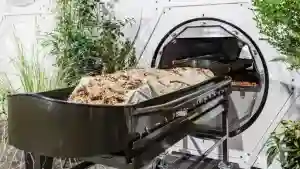Human composting, which helps human bodies turn into soil, is already legal in 6 states in the United States of America.
Proponents of the movement say burials and cremations carry heavy environmental tolls. They say burials require embalming bodies in toxic solutions, plus an indefinite use of land, and cremations result in millions of tons of carbon dioxide emissions annually.
Over the last 15 years, the rate of cremation in the U.S. almost doubled, to 57%, according to CNBC.
Many of human composting’s advocates are relatively young, according to founders of human composting companies.
Experts who study decomposition and the environmental impact of dead bodies agree that these companies present an unparalleled opportunity.
Jennifer DeBruyn, an environmental microbiology professor at the University of Tennessee, Knoxville, said:
My first reaction was: Why haven’t we done this before? It’s not really a new idea. It’s just new-ish that we’re applying it to humans.
Human composting, which is also called “natural organic reduction,” is now legal in six states and counting.
Washington was first, in 2019. Colorado, Oregon, Vermont, California and New York soon followed.
Proponents say legalisation is only the first step, the next big hurdle is getting more people on board with the concept.
Return Home, one of the human composting companies is taking advantage of its huge following on Tik Tok to raise awareness on the matter.
More than 570 000 followers watch videos about what happens to the soil, where the bones go and other common questions.
Critics are increasingly voicing their concerns.
Burials have helped humans process death for millennia, a process codified in multiple major religions. Cremation, popularized in America as recently as the Civil War, is notably common in modern-day Catholicism.

